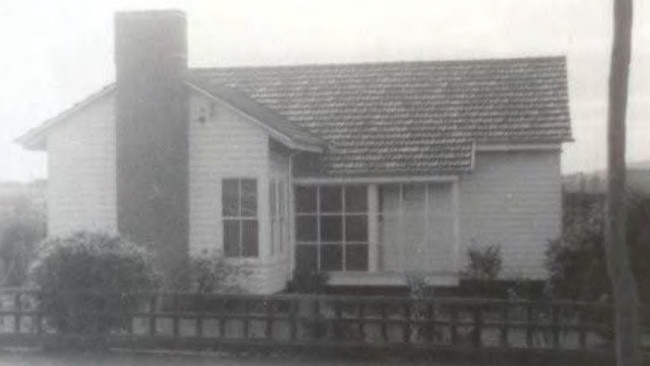
The Housing Commission of Victoria, established out of the findings of various enquires into poverty in Melbourne in the 1930s, was one of the great social advances of the 20th century. It delivered dignity, pride and security to a generation that remembered the Great Depression and fought in WWII.
Our house was a three-bedroom weatherboard-and-tile dwelling with various outhouses – namely a wash house, a woodshed and a lavatory. Mum did the laundry in the wash house using hot water heated in a copper. Milk was delivered to the front door; bread, groceries and meat were delivered direct to the kitchen off the back door. The lavatory was emptied weekly by a nightman. Rubbish was collected by a man with a horse and cart.
We knew our neighbours well. The Cliffords over the back fence had a phone; that’s how Dad heard his father had died in 1964. There was a communal pooling of resources; when our telly went on the blink, a neighbour with electronics expertise fixed it by either replacing valves or by soldering a broken connection.
The block was a quarter acre (1012sqm), about twice that of housing allotments on the edges of cities today. There were no trees in the nature strip or concreted footpaths or formed guttering; all this would come later. The sewerage “went through” in the mid-60s, allowing the loo to be brought inside.
The garden was lovingly attended by my mother and father. The back yard contained a garage dad built – without the bother of a permit – using scrounged time and corrugated iron. There were chooks, fruit trees and a vegie garden. There was also an incinerator where all manner of rubbish was burned, and a wood heap where blocks of wood would be split and stacked, ready for the open fire in the lounge room or the combustion stove in the kitchen. Photos taken to record, say, First Communion or Confirmation, were posed in the front garden. Less formal photos of kids lined up oldest to youngest were taken in the backyard.
Six kids shared two bedrooms: my two sisters in one bedroom and four boys in the other. I got the top bunk. My brother would wake me by kicking the mattress from underneath. Later we got a caravan for the backyard, which gave us more bedrooms.
In the late 1960s, when my mother went back to work, the economy of our household changed dramatically. We could go on caravan holidays to faraway places like Echuca, Mount Gambier and Albury. Around this time, Mum wanted to do up the front room. She wanted wall-to-wall carpet, curtains with a pelmet (which dad made) and a bevelled mirror above the open fire. We also got a burnt orange vinyl lounge suite to complete the picture. Mum made the curtains on her treadle sewing machine.
Whenever I’m in Terang visiting family, I drive past our old home. I don’t see a Commission house. What I see is a place that gave my parents and our family dignity, security and a sense of pride.




In 1949 my parents – then aged 22 and 24 – thought all their Christmases had come at once when they were allocated a new Housing Commission house in Terang, Western Victoria. To this generation, especially during the post-war housing shortage, social housing was considered a godsend.